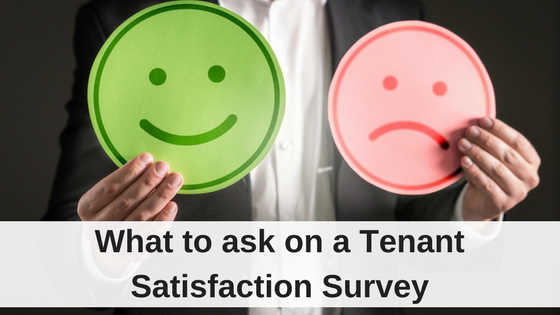Each investment property comes with its own risks and rewards, and this is even truer when your property comes with rent-paying tenants, so you can start collecting rental income right away.
However, there are ins and outs to buying a tenant-occupied rental, and every investor should know the potential roadblocks and benefits to inheriting tenants with your new investment property.
Leases Are Still Legal
While a lease is a legal agreement between tenants and a landlord, the lease does not dissipate with the sale of the property. Just like easements and other covenants that are considered to “run with the land” the leases are tied to the property itself and not simply the owner. This means that the lease stays “attached” to the house if you purchase the property and you will not be legally able to raise the rent, modify clauses or kick the tenant out simply because you are the new owner. The only exceptions to this are instances where the termed lease specifies that the owner (the property’s seller) has the right to termination upon transferring the property, or if you are purchasing the property as a foreclosure, in which case you can refer to your state’s regulations regarding notice to vacate.
If you truly do not want the tenants in the home–because you would like to occupy the property yourself or because you would like to start fresh, you can submit an offer that is contingent on the property being vacant upon closing. In this instance, the burden is placed upon the seller to legally break the lease.
Since the tenants have a legal right to live in the property until their lease term ends, this can often mean the best option for the seller is to offer the tenant cash for keys. The other option is to buy the property and then break the lease(s), renegotiate the terms, or “buy out” the tenant(s) yourself. This can be a risk however because the tenants are not obligated to accept, and you could put yourself in the position for a lawsuit if you attempt to break the lease or force an eviction.
When to Make a New Agreement:
If the current tenants are not in a termed-lease, but simply a month-to-month agreement you are afforded a few more options to change the rental situation. You can ask your new tenants to sign a new lease agreement or can raise the rent as needed–provided you give them the notice as dictated by your state and local laws. This can be useful to protect yourself, your investment, and guarantee that both you and your new tenants are on the same page. Treat this like any other lease signing, and carefully go over the lease terms to verify that your tenants do not engage in any lease-breaking activity under the premise that it was previously allowed.
Existing Tenants: The Good and The Bad
In theory, purchasing an investment property with existing tenants is ideal. This means immediate cash flow, no downtime searching for the right renters to occupy your new property, and (if the tenants have lived in the property long-term) you have a limited risk of the property becoming vacant in the near future.
Tenant screening is vital to ensuring that your investment is protected. Bad tenants can create havoc through unpaid rent, property damage, and drawn-out eviction cases. Unfortunately, inheriting existing tenants means that you are forced to rely on the previous landlord’s tenant screening process–which may be lacking. The seller could have accepted any applicant (regardless of qualifications) simply to list the investment property as occupied, or they may have a long-term tenant who simply refuses to pay rent on time or at all. Buyers beware– a landlord could simply be selling their property to offload the problem tenants onto an unsuspecting investor.
Other roadblocks can occur with existing tenants. You may find that the current occupants are dream tenants, but they are unprepared to continue to occupy the rental under a new landlord. The sale of a property is a big change for a tenant, and if your new tenants have lived in their existing property long-term, they have likely settled and become comfortable with their current rent price and lease allowances. If the previous landlords were not increasing the rent yearly or were not performing regular seasonal inspections, you may find that your new tenants balk at the changes you must make to protect your investment.
Before The Sale is Final:
Whether your inherited tenants are currently on a month-to-month agreement or a termed lease, there are a few tasks you must perform before closing on a renter-occupied property to ensure the process runs smoothly. First, consider introducing yourself to your new tenants via a landlord introduction letter. This will make your tenants feel more comfortable during the transition and put in place the foundations of a great landlord-tenant relationship. Additionally, it will allow you to include important information such as where and how rent is to be collected, and how tenants may make maintenance requests.
Learn more and find a sample introduction letter: New Landlord Introduction Letter
Finally, since you will be assuming the responsibilities of the previous landlord, it is imperative that you fully protect yourself. Reduce your risk by instructing your tenants-to-be and the seller (current landlord) to fill out an estoppel agreement along with transferring the security deposit over to you. An estoppel agreement allows your future tenants to spell out any current lease terms or property allowances that are in effect. While, in general, the lease agreement will cover a lot of these areas, there are circumstances that only an estoppel will address. For instance, if the tenant makes a claim upon move-out that they paid a larger security deposit than you have a record of, or that the window AC units are theirs and do not stay with the property. In these cases, you can refute untrue claims with the estoppel agreement. Knowing the current property owner will see the Tenant Estoppel Agreement should prevent the tenant from providing false information.
Final Thoughts
Purchasing a renter-occupied investment property is an exciting opportunity for investors who want to begin collecting rental income immediately. Before closing on a renter-occupied property be sure to consider the lease agreement and review the tenant screening criteria the seller used to qualify the current tenants. If you can agree to the lease terms and feel confident with the current renters, continue with a landlord introduction and create an agreeable estoppel agreement. If the current tenants are month-to-month renters, you have more options for modifying the current lease and tenancy as long as they meet state and local laws. Check-in with local property managers and real estate investment groups for more advice on rental properties in your area.
This article was originally published in Aug 2018 and has since been updated.







Hi, I am in the process of buying my first apartment. The apartment currently has a tenant until 1/6/20, my intention is to live in this place. I am fine with the tenant staying until then, but I want to understand the implications of keeping the tenant for 3 months after closing from an IRS and mortgage stand point.
Thanks for your response
That is a great question but unfortunately, we wouldn’t be able to offer legal or accounting assistance. I would recommend you reach out to your accountant to discuss. We wish you all the best.
We have tenants that lease ended in December, they have continued to pay their rent late for the past 10 months. They have not paid their rent in 2 months. During which time my husband has been gravely ill. A family member offered to buy the house, to keep us from losing the house. We’ve given them 30 days to vacate, and now they are playing this game that the heat and air is not working in the house and they feel we need to pay them $7500 to move out. They feel they have rights..any suggestions?
Hi Gwen, I am sorry you’ve had this tenant issue while dealing with a family illness. It sounds as if they are attempting to force a Cash for Keys scenario. In some cases, it’s a valid option to help get them to move quickly so you can avoid a costly and time-consuming eviction.
My best advice is two-fold:
1) Whether you go the cash for keys route or proceed with an eviction, be sure to address the heat and air situation as soon as possible.
Hire an expert and document their findings and repair efforts. Otherwise, the tenant might be able to counterclaim for money and/or the right to continue living in the home. Even if they don’t counterclaim, they could use their complaint as a defense.
2) Follow proper eviction procedures and seek legal counsel as they will be able to help you navigate these waters.
Wishing you and yours all the best – Heather
Great Article! The tips for buying a property you have mentioned in this article is really impressive. Thanks for sharing valuable information!
Great read, Brentnie! Buying a property with existing tenants is beneficial since you will receive immediate earning and will not have to waste time looking for the perfect tenants. Moreover, the renters have a legitimate claim to dwell in the property until the end of their lease term. A change in ownership does not terminate the lease. As part of the settlement process, the lease is transferred to you.
Thank you for taking time to share those kind words and insights, George!
We bought a condo with a tenant in it. We were looking forward to the 2 months rent as they had 2 months left on the lease. The tenant left just days before closing. Does the seller owe us rent for the 2 months
That’s an interesting scenario. I can’t offer legal advice but I don’t believe the seller is responsible to ‘reimburse’ for that loss as the tenant could have easily left the day of or after your purchase. In which case, you’d be out those funds. At a minimum, you now have an empty unit that you can rent out (perhaps at a higher rent then the previous tenant had been paying). You may want to check with your attorney on claiming a loss for any days of vacancy. In addition, you may want to check with your buyer/seller agreement or real estate commission (real estate board), and/or real estate attorney to see if you are entitled to the security deposit they forfeited.
I’m looking to buy some houses and apartments with pre-exiting tenants. I’m a bit new to this and want to interview the tenants before purchasing the properties but I am unsure if this is something I can legally do and my own research is lacking in that aspect. One of the properties has the current owner explicitly stating to me that I am not allowed to ‘bother the tenant’ before purchase which feels like a red flag.
Is there some sort of etiquette or law that prevents me from speaking with the tenants? Do I need the property’s owner’s explicit permission to visit the residents?
I am unable to offer legal advice so you will want to check in with your real estate agent, real estate attorney, accountant, and the state real estate board. But, I would imagine that your real estate agent can arrange for you to inspect the entire property. While you are having a ‘showing’ of the property, there isn’t anything keeping you from talking to anyone you encounter.
Secondly, your accountant and attorney can point you in the right direction to know which documentation to ask for to look for issues like deferred maintenance and any other data they think you’ll need from the seller to make a good decision.
Wishing you all the best success!
Hello,
I’m looking to purchase a multifamily investment property out of State. I would love to BRRRR on this deal, that is to Buy, Renovate, rent, refinance, & repeat.
Would it be beneficial to obtain a renter occupied property versus looking for something that is vacant? & if the property is currently occupied how can I execute my agenda and protect my investment simultaneously?
Shaakir, it’s great to hear that you are interested in investing. Choice in investment types and situations are uniquely individual and complex. Unfortunately, I am not able to offer financial nor investment advice. But can offer these two articles that might prove useful:
Understanding Turnkey Investing
Buying a Rental Property vs. Fix and Flip – Which is Better?
Having said that, I would always recommend discussing your options with your real estate attorney, accountant, and insurance carrier before making any final decisions.
Wishing you the best success!
I am looking to buy a house with current tenants on a lease until the end of the year. Since we intend on making it our primary residence after there lease is up, could we apply for a primary residence loan, or would we have to call it an investment property?
I am interested in purchasing a property in which owner would finance directly. Alternative Is a lease option agreement. Don’t know if this is even possible since there are tenants currently in place for 1 year. A lease option allows me to control the property and rehab if necessary. My intention would have been to rent it out but in this scenario, a tenant is already in place. Please advise